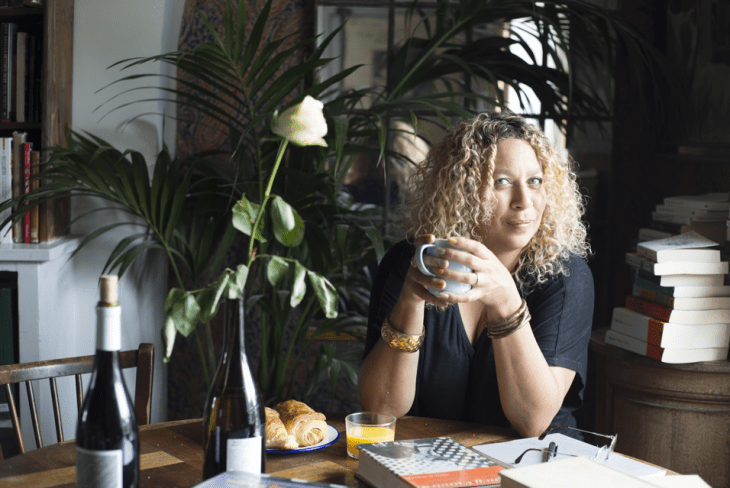‘Without death,’ says Salena Godden, ‘life would be a never-ending conveyor belt of sensation.’ For her death is what gives meaning to life and to be able to imagine your own death should make you try harder to be a better person. Mrs Death Misses Death on Radio 4 (produced by Cecile Wright) is not a programme for the faint-hearted. Godden, a poet, novelist and musician, faces with robust clarity what many of us would prefer to distract ourselves from thinking about. She argues that Death is much more likely to be a woman; not the usual caricature of a hooded male figure carrying a sickle. She’s that invisible woman who can be found anywhere and everywhere: the careworn mother sitting beside us on the bus, or the cleaner in the hospital corridor we walk past and don’t notice. She lives among us in different guises; that’s the point. Death really is part of life. When we use different words to anaesthetise its meaning, set it apart from us, then it becomes terrifying. But, says a doctor interviewed by Godden who has sat with many people on the brink of death, ‘it’s not actually that difficult to be dead; it’s much more difficult to be alive’.
Godden visits a Death Café where people gather to drink tea, eat cake, and be up front about a subject that has become since Victorian times almost a taboo, something impolite or socially inept to raise in conversation. There are so many ways not to say it, to hide behind euphemisms and words without meaning: she passed away, or even more obtuse, she passed on. Stranger still is when we say she lost her fight with cancer, she battled with depression, as if she had a choice, as if this isn’t what was meant to happen. We all know a lot of dead people now, says Godden, yet we don’t know how to ‘unfriend’ them or erase them from our smartphones. Yet to talk about death, says Godden, is to talk about life, ‘to celebrate the everyday miracle of survival’.
Vicky Phelan was confronted with those terrible words, your cancer has returned ‘and I can’t do anything for you’, last year. She was given six months to live and offered ‘palliative’ chemotherapy. By chance, at the hospital in Ireland where she was being treated for cervical cancer, she caught sight of her medical records and discovered that in 2011, when the results of her smear test were reviewed in an audit process, abnormal cells had been found. But she was never told. Phelan set about finding out why she had not been informed, and whether any other women had been put at risk because they, too, had not been told about a changed result. Her campaign opened up a much bigger debate in Ireland about the way women’s health problems have been disregarded over the years because the medical profession has for so long been dominated by male doctors, one of whom was reported to have said: ‘Nuns don’t die of cervical cancer.’
In Vicky Phelan: The Woman Who Changed Ireland, as part of the World Service’s 100 Women season, celebrating the unsung work of remarkable women, Phelan was asked whether she thinks about her own death as she campaigns for all the women now suffering from cancer. ‘The thought often crosses my mind but I don’t get too cut up about it,’ she says. ‘Every day I can do it [walk along the beach near her home in Limerick] is great for me… This is where I will be spread… ashes. I’ve already made all those things in my head.’
This might all seem a bit heavy for this time of year. It’s grisly enough outside without dwelling on those things that are too difficult to bear. But listening to people talking about what matters, really matters, can be strangely consoling when darkness falls at four and there’s no escaping the tinsel froth. In a different vein on 3, David Hepworth’s series of essays, The Lost World of the LP (produced by Jordan Thomas), brings back memories of buying that first album, dusting the shiny black vinyl before placing it on the spindle, the sound of the needle running through the groove. Why are we still so attached to LPs when cassettes and CDs have no such resonance? It’s nothing to do with the music, says Hepworth, but all about what makes us human; the connection to a physical object that in itself is nothing remarkable (a flat, black disc) yet within its 33 and a third rpm conveys moments of meaning.
More than that, says Hepworth, the LP, with its 35 to 40 minutes of play time, its demand that we stop and listen until the last groove, taught us how to focus, to concentrate. Now, when anything we want to hear, from Dusty to Duruflé, is available so easily, through a few clicks, a barked instruction to the digital DJ, music has become incidental, nothing but a soundtrack. In those 35 minutes, that period specified by the size of the 12-inch disc, things happened, states were altered. It was a different way of listening.






Comments